
Brussels, November 22, 2024.
Over 70 enthusiastic participants gathered last week at the Young European Research Universities Network (YERUN) headquarters in Brussels for the Erasmus+ EUPM² Project Final Event, marking a significant milestone in advancing Project Management for EU-funded projects based on the European Commission´s PM² Methodology. The event, titled “EUPM² Unveiled: A New Tailored Approach to Managing EU-Funded Projects”, showcased the outcomes of the EUPM² project, spurring lively debates and fostering engagement from a wide and diverse audience.
The day kicked off with a warm welcome speech by Professor Andrea Bonomi Savignon from the University of Rome Tor Vergata, leading partner of the project. Professor Bonomi emphasized the importance of projects as drivers of European polices and the need to include Project Management courses at university level to train new generations in the necessary mindset and skill for managing European projects. His words set the stage for a day filled with insightful presentations, engaging discussions, and practical training sessions.
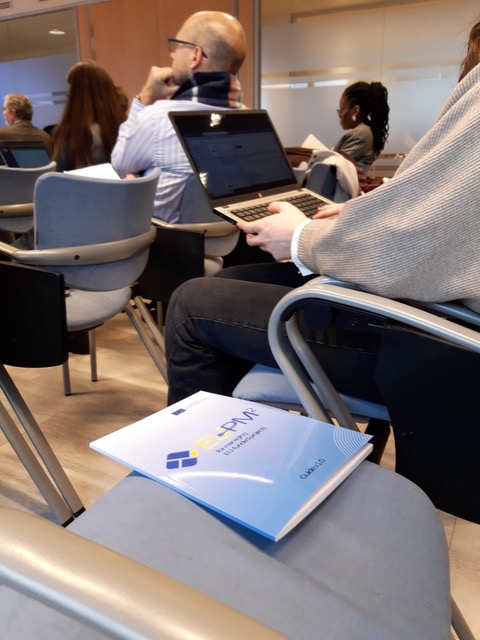
Key Deliverables Unveiled
The morning session featured a detailed presentation of the project’s deliverables and outcomes by a team of esteemed contributors. Marco Amici, Project Coordinator from the University of Rome Tor Vergata, offered an overview of the EUPM² project. The project has made possible to tailor and adapt the PM2 Methodology to the specific needs and constraints of project managers involved with EU-funded projects (Erasmus+, Horizon Europe, Interreg, etc.), providing for a practical integrated framework for their design and management, and an invaluable structure for delivering training at university students at graduate and master’s level.
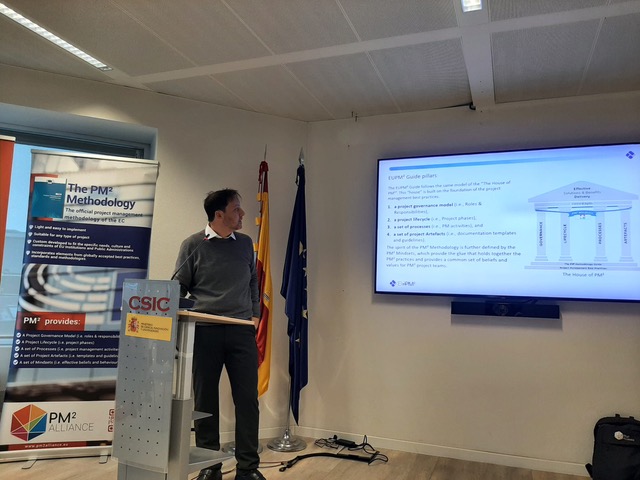
He was followed by Associate Professor Jana Kostalova from the University of Pardubice, who shared evidence from pilot courses developed for higher education institutions (HEIs). Closing this session, Agustin Moya Colorado from the Technical University of Madrid and PM² Alliance, presented the EUPM² Web Tool Kit, a digital set of tools designed to support the teaching of the courses with the EUPM² approach.
The audience expressed keen interest in these deliverables, recognizing their potential to streamline project management practices across a variety of sectors. One participant described the tailoring effort as “a very needed step forward in making project management methodologies accessible and adaptable for EU-funded project.”
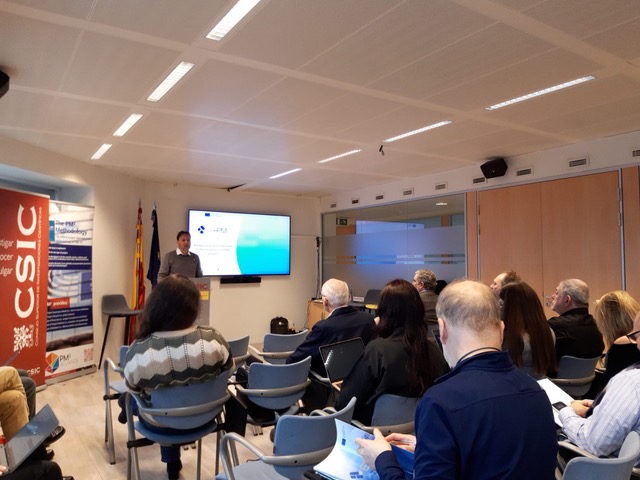
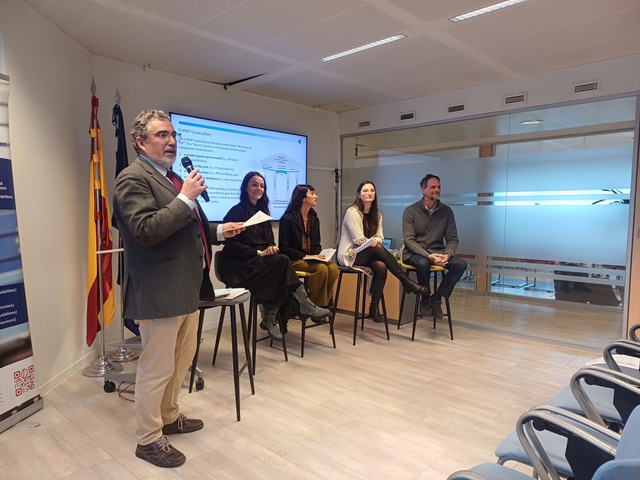
PM² Alliance has proudly contributed to this project as an associated partner, joining the partnership composed by the following institutions:
- CEIS University of Rome Tor Vergata (Italy)
- Technical University of Madrid (Spain)
- University of Pardubice (Czech Republic)
- FH JOANNEUM University of Applied Sciences (Austria)
- Nova University of Lisbon (Portugal)
- Alma Mater Europaea ECM (Slovenia)
- University of Tartu (Estonia)
- PM² Alliance (Belgium)
- Unioncamere Europa asbl (Belgium)
- Coordinadora de ONGD (Spain)
- ARCI (Italy)
Dynamic Discussions on Tailored Approaches
The highlight of the event was a lively discussion panel moderated by Agustin Moya Colorado. Bringing together EU-funded project experts and practitioners, the panel explored how tailored approaches to project management can enhance the delivery of EU-funded projects. Panelists included:
- Nicos Kourounakis, PM² Expert and Co-Author of the PM² Methodology advocated the flexibility of the PM² principles, the need to remain outcomes-oriented, and the strength of PM² in delivering improvement and benefits to project managers across Europe.
- Greta Bilanzola, Senior Project Officer at Eurochambres, who emphasized the pivotal role of SMEs in EU-funded projects and proposed strategies to increase their participation and impact.
- Raquel Vega Rubio, Policy and Project Officer at YERUN, who called for a shared project management language within the European research community to promote integration and collaboration.
- Danijela Ćirić Lalić, Assistant Professor at the University of Novi Sad and Chief Project Officer at the European Academy, who shared her experiences tailoring PM² for university environments and underscored the value of aligning methodologies with specific institutional goals.
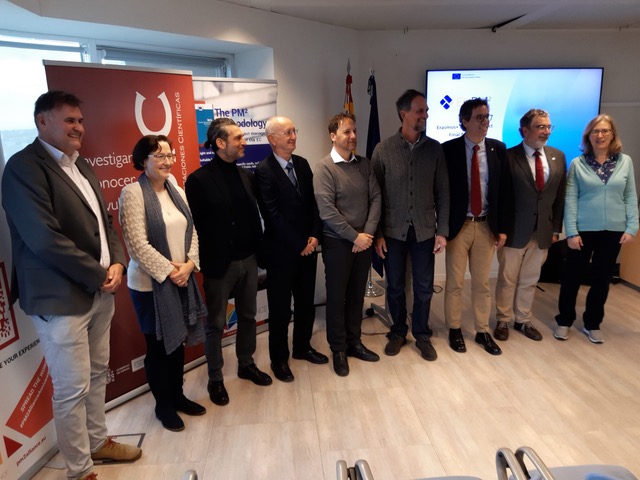
Audience members were deeply engaged, contributing questions and comments that further enriched the discussion. The consensus among participants was clear: EU-funded projects require not just a one-size-fits-all methodology but a flexible, tailored approach to address the complexities of different contexts and stakeholders.
PM² Alliance has proudly contributed to this project as an associated partner, joining the partnership composed by the following institutions:
- CEIS University of Rome Tor Vergata (Italy)
- Technical University of Madrid (Spain)
- University of Pardubice (Czech Republic)
- FH JOANNEUM University of Applied Sciences (Austria)
- Nova University of Lisbon (Portugal)
- Alma Mater Europaea ECM (Slovenia)
- University of Tartu (Estonia)
- PM² Alliance (Belgium)
- Unioncamere Europa asbl (Belgium)
- Coordinadora de ONGD (Spain)
- ARCI (Italy)
Interactive Training and Networking
The afternoon featured a masterclass on the EUPM² Guide, led by Marco Amici and Agustin Moya Colorado. This hands-on session offered attendees the chance to dive deeper into the practical applications of the guide, equipping them with tools to implement its principles effectively.
Participants also enjoyed ample opportunities for networking during breaks and a light lunch. The event fostered connections among professionals from academia, industry, and policy-making, all united by a shared commitment to advancing project management practices in the EU.
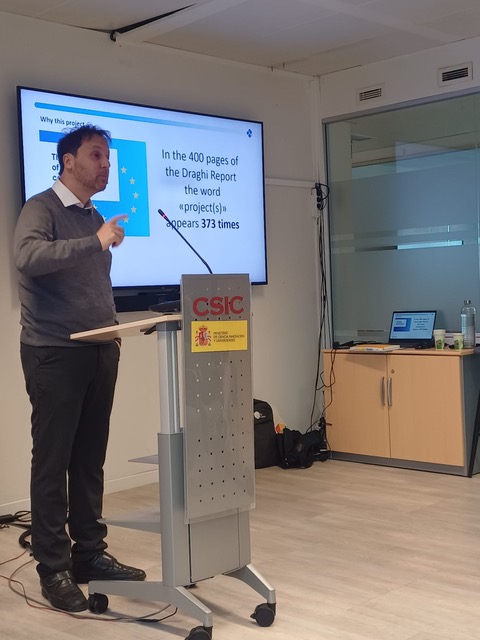
A Resounding Success
The event concluded with a strong sense of accomplishment and optimism. Participants left inspired by the quality of the discussions, the innovative tools presented, and the vibrant community committed to making a difference in how EU-funded projects are managed.
Looking ahead, the EUPM² project team hopes to see widespread adoption of the EUPM² Guide, fostering a culture of efficiency, effectiveness, and impact in EU project management and PM² Alliance will be accompanying it on the new challenges ahead.




